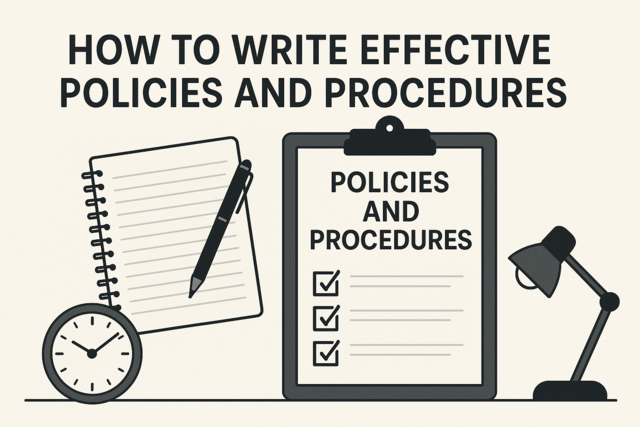You've been working for the same company in the same position for a few years now. You love the company, you like your co-workers, and you even like your boss. But you're ready to take the next step in your career now. You're ready for a promotion.
In today's world, you don't get promotions just for being on time to work every day and not causing any trouble (being a gossip, etc.) Nowadays, employers look for leadership in employees. They want to see passion and attitude that says, "I'll do whatever it takes."
The Two Types of Promotions
Typically, we think of a promotion as a move up the proverbial ladder. Maybe you don't quite have the skills it requires to move up, but you still want to be considered for a promotion. The good news for you is that promotions can also be lateral. A lateral promotion is when you move to a different area or department and hold a similar job title or salary. You'll take on new roles or responsibilities with a lateral promotion, just as you would a vertical. You'll still gain new skills, experiences, and a bigger network of colleagues. Plus, you'll increase your value to the organization. You'll also become a stronger candidate for a vertical promotion.
Preparing for a Promotion
Even when you first start working for a company and are perhaps a long way from your first promotion, there are things you can do to make getting a promotion easier when the time comes.
Have a strong work ethic. Deliver your work on time and accurately. You need to be dependable, and the person your boss knows he/she can go to when they need something. Make yourself an expert at your job. Master your position.
Find a mentor. Find a mentor who can help you strengthen your skills and traits, but also one who can champion your skills to the right people in the company.
Communicate. Talk to your boss about your career goals within the company. Also, make sure you promote your accomplishments. Just don't brag.
Volunteer for projects . This demonstrates initiative, plus you'll get to show your skills to others in the company and gain name recognition. You'll also build your network.
Stay away from gossip and office politics . Your company wants to see integrity and trustworthiness from you. If you get involved in gossip or office politics, you can destroy your career. While you'll want to form alliances, watch the politics that go on from the sidelines.
How to Ask for a Promotion
Asking for a promotion can be almost as terrifying as the dreaded performance appraisal. Just as with the performance appraisal, you are taking a chance that you'll be told no � that you're not ready, you're not qualified, or you're not a good candidate. Hearing these things can be devastating.
The most important aspect of getting a promotion is preparing before you ask.You'll need to be able to prove you're ready for this next step in your career, and in the company.
Prepare Ahead of Time
Gather your skills and accomplishments together to present to your boss. You'll want to emphasize your contributions to the company that went above and beyond your job title or description.Think of it this way: Everybody at your company is expected to do their job adequately. What have you accomplished that shows above and beyond the norm?
Here's an example.
You are an assistant sales representative. A year ago, when the sales representative you support went on maternity leave, there wasn't another sales representative to take over her role. In order to provide continuous support to the company's customers, you stepped up and took over her job duties � plus kept up with your own.You did all this under the title of assistant sales representative.
This is just one example of going above and beyond. These are the types of things you'll want to be prepared to highlight when you ask for that promotion.
Find the Right Time
There's never a perfect time to ask for a promotion, but you can find a proper time. Traditionally, the best time to ask is during your performance appraisal or semi-annual review. In truth, when you receive a positive performance appraisal, it's a great time to ask, because your boss is already singing your praises. However, don't ask for a promotion because of the positive review. You'll still want to be ready with all your accomplishments.
You'll also want to consider what's going in in your department before you ask. If there's a lot of change going on in your department, such as merging with another, it's a great time to ask for a promotion. You can display, by showing your accomplishments, how you can help advance the change for the company and/or department by emphasizing your contributions. Ask your boss how he/she sees your role in the company as the changes occur and the company grows.
Ask Your Boss for a Meeting
If it's not time for your annual or semi-annual review, you'll want to ask your boss for a meeting so you can discuss your performance, as well as your potential. Send the meeting request by email. The one thing you don't want to do is walk up to your boss at his/her desk, toss your stack of accomplishments in front of him/her, and ask for a promotion. Schedule a meeting and bring all that homework you've done to the meeting with you.
How to Negotiate Salary
When you interview for your promotion, ask your boss or manager about the salary associated with the new job. Don't wait until after you receive the promotion to ask about salary. You should have already found out the salary range for the new position. If not, you'll want to do that between the time you interview and when you find out the results.
Once you know the range, find the midpoint. Most employers start employees out at 15 percent below the midpoint. Compare that to what you're offered. If you feel like you're not being offered enough, it's time to negotiate your salary.
Sit down with your new manager or boss to ask about your salary. Don't simply say you want more money. Instead, state the facts. State what you want. Here's an example:
"Based on my contributions and expectations in my new role, I would like to be paid�"
You can also point out your expertise and time with the company if the offer is below the midpoint.
This lesson contains three different simulations � or enactments of situations that you may run across with your boss. For each simulation, you will get a description of the situation, as well as the environment. Using what you've learned in this course, pick the choice that best represents how to handle the situation. Remember, your career is on the line. Being able to effectively manage the boss is an important step to advancement.
Simulation #1: Pleasing Your Boss
Situation: You work for a small ad agency that has 20 employees. You took the job a year ago, straight out of college, so you could get broader experience. In a larger agency, you feel you would be pigeon-holed and not allowed to learn the ins and outs of the business. Your boss is the creative director.
One day, he comes to you and a co-worker and tells you that Bee Cee Company wants to do a re-brand and is considering your agency for the job. Your boss wants you and the co-worker to come up with a concept that will "wow" Bee Cee Company and land the contract. This has to be done in three days, so the team can work to make your concept into a presentation for the Bee Cee executives.
This is your chance to shine. You are a creative person with a lot of great ideas. Plus, you're very familiar with Bee Cee Company because they make your favorite brand of chewing gum. However, you're also committed to another project (Project A) that has a deadline in just a few days. You have tasks related to that project on your to-do list that are critical, as well as other minor tasks for Project A that you must do over the next few days that will take up the majority of the next few days.
What do you tell your boss?
a. You don't tell him you'll do what you can. He should already know about Project A because he is your boss, after all. He must want you to do both, even though you don't have the time. So, you panic and take work home with you, rushing to get everything done. You rely on your co-worker to come up with a brilliant idea. He always does. Then, you plan to help him develop it.
b. You realize that you only have three more tasks on your to-do list that are critical and related to the Project A. You decide you can do those right away, instead of waiting until tomorrow as originally planned. The other tasks you have on your to-do list can be delegated to interns and assistants to free up the next two days for Bee Cee. You go over your task list with your boss, and show him how you're going to manage both projects by delegating tasks to capable interns and assistants, complete the critical tasks, then oversee the work the interns and assistants do.
Write down what you would say:
c. You tell the project manager of Project A that the creative director has moved you to another project. You send the project manager your task list and apologize for the inconvenience. To be helpful and go above and beyond, you offer to help complete some of the major tasks before leaving the project completely. You don't tell your boss anything. He wanted you to take care of this yourself. It shows initiative.
Simulation #2: A Confusing Boss
Situation: You work for a large corporation that sells uniforms to other companies. Your job is in the accounting department in Accounts Receivable, and you are an accounting clerk. Your responsibilities include running reports on accounts, printing invoices, and making sure they get sent out to customers. One day, your boss asks you to run a report on the customer ABC. After you run the report, he instructs you to prepare an invoice and send it via an email that includes a list of all unpaid invoices, with a note that their account is over 90 days past due. They must call the credit manager of your department immediately to make payment arrangements or have their credit line with your company revoked. He asks you to email him a copy of the invoice when you're finished so he can review it.
You do just as he asks, making sure the invoice is sent to the customer, and that your boss also receives a copy. The next day, your boss comes to you and is irate that you sent the customer the invoice. The whole reason he wanted to see it was because he knew there were some errors that had to be cleared up before the customer saw it. Now the customer is mad and is threatening to take their business elsewhere, and the boss is mad at you for not following instructions. He wants you to apologize to the customer, and tell the customer that it was your mistake.
What do you do?
a. Apologize to your boss. Explain that you must have misunderstood his instructions, even though you know you did exactly as he asked in his email to you. Offer to apologize to the customer and take the blame. You should never point out that your boss is wrong because that will just make him angrier.Then apologize to the customer.
b. Show the boss the email he sent you and apologize for the customer's anger. However, you should be angry and offended that he accused you of making the mistake when you obviously followed his directions. But don't show this anger to your boss. You can vent to your co-workers once the boss walks away, because they all know what a screw-up he is and will sympathize. That said, you shouldn't apologize to the customer. Let your boss do that. It was his mistake, and you need to save face.
c. Show the boss the email he sent you and point out that he told you to send it, but don't be angry.This is just a mix up, and it can be cleared up. Explain that you would be happy to take the blame with the customer so that the company can retain the account. Offer to send the customer an email apology explaining that you made a mistake, and the company is aware that the invoice you sent isn't correct.
Simulation #3: Asking the Boss for an Opportunity
Situation: You are an account manager at a large medical supply company. New accounts are coming into the department, and you hope to be assigned one of the accounts, since they are larger than the ones you have now. You will be able to prove how good of an account manager you are in being able to manage these accounts, as well as grow them by working with the customers to introduce them to new products and getting contract renewals for larger amounts. At the department meeting, your boss tells all the account managers that he will be giving the accounts to the senior account managers.
You're not a senior account manager yet. That's the next promotion you want to get, which is why you've worked hard to be the top junior account manager in your department for the last two quarters. You've been passed over twice for the promotion because your boss felt that you were not ready for the additional responsibilities, but the last time you were passed over was almost a year ago. You've made drastic improvements to your productivity, skills, and knowledge since then. However, you still want one of those new accounts.
What do you do?
a. Ask for a meeting with your boss. During the meeting, ask him to be promoted to a senior account manager as soon as a position is open. You are aware there's not a position open right now. Bring evidence of your accomplishments with you to the meeting. You realize it's time to take that next step.You're just doing it sooner than you planned. You were going to wait until your performance appraisal in three months.
b. Ask for a meeting with your boss. During that meeting, show him evidence of your accomplishments, including how you've improved the company's revenue as a junior account manager. Discuss your career path inside the company with him and let him know you're interested in becoming a senior account manager as soon as a position opens. In the meantime, you'd like to take on additional responsibilities and managing one of the new accounts would be a logical step. Show evidence that you have the skills and knowledge to accomplish this. Also, go over your task list and show that you also have the time for additional responsibilities.
c. Ask for a meeting with your boss. During that meeting, show him evidence of your accomplishments, including how you've improved the company's revenue as a junior account manager. Tell him you're disappointed that you keep getting passed over for additional opportunities, including these new accounts. Point out that a co-worker who is the boss's sister's best friend got the last promotion, even though she had only been with the company for a few months. Ask for one of the new accounts, but be prepared to look for another job if he turns you down. Obviously, this boss has it out for you.
























